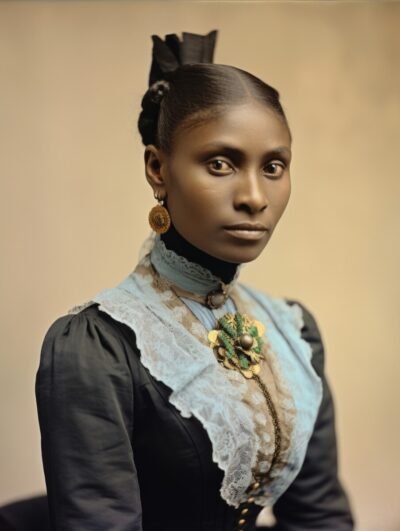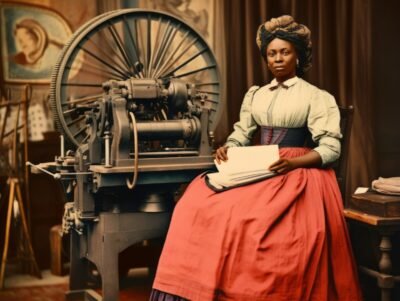When Black women were excluded, they built their own. They didn’t wait for anyone to hand them power or safety.They created it—brick by brick, idea b
 When Black women were excluded, they built their own.
When Black women were excluded, they built their own.
They didn’t wait for anyone to hand them power or safety.
They created it—brick by brick, idea by idea, prayer by prayer.
In the face of racism, sexism, classism, and indifference, the Black Women’s Club Movement of the late 19th and early 20th centuries became a quiet storm of transformation. These weren’t just “clubs”—they were lifelines, war rooms, sanctuaries, and seedbeds for liberation.
Here’s what “Lifting as we climb” truly looked like:
🌿 1. Context: Why They Had to Build Their Own
Post-Reconstruction America was brutal for Black communities: Jim Crow laws, lynchings, widespread poverty, and legal exclusion.
White feminist movements ignored Black women’s issues. (NOT “denied us womanhood” because that would imply that they own womanhood. Own womanhood? For the entire planet or just in the case of Black American women?)
Black male-led movements often centered male leadership and left women’s needs in the margins.
So Black women did what they always do when abandoned—they organized.
In 1896, over 100 local Black women’s clubs joined to form the National Association of Colored Women (NACW)—a defining act of self-determination.
🔒 2. They Created Safe Spaces Where None Existed
These weren’t just meet-ups or socials—they were institutions of survival and hope.
Homes for “wayward” girls – Shelters for young women vulnerable to abuse or criminalization
Maternity and nursing centers – Midwives, maternal care, infant mortality advocacy
Reading rooms & literary salons – Intellectual powerhouses fostering political thought
Mother’s clubs & protection committees – Early child advocacy against state neglect
Vocational & industrial schools – Training for economic independence beyond domestic work
🪶 These were places of both refuge and resistance.
 ✨ 3. “Lifting As We Climb” Wasn’t Just a Motto—It Was a Way of Life
✨ 3. “Lifting As We Climb” Wasn’t Just a Motto—It Was a Way of Life
The NACW’s guiding philosophy meant:
No one gets left behind—from the educated elite to the poorest working-class women
Care was revolutionary—Black women organized not only for themselves but for the collective
No replication of white elitism—Despite class tensions, many clubwomen made space for working-class voices
Narrative reclamation—They directly challenged racist depictions of Black women as immoral or unintelligent
This was not charity. This was power sharing.
🌺 4. Key Women Who Carried the Flame
Mary Church Terrell – Wealthy, educated, but deeply rooted in advocating for poor Black communities
Ida B. Wells – Anti-lynching warrior who built mothers’ clubs and working-class sanctuaries in Chicago
Frances Ellen Watkins Harper – Abolitionist poet who merged storytelling with liberation strategies
Each woman represented a different thread in the tapestry—but all were committed to uplift through unity.
🌌 5. The Legacy We Still Walk In
Though often left out of mainstream feminist histories, the Black Women’s Club Movement:
Prefigured the civil rights movement
Birthed womanist philosophy
Laid the foundation for Black-led mutual aid
Modeled community-based social work and healing
They showed the world what happens when Black women decide that we will survive, thrive, and lead—together.
💬 A Final Word:
“Lifting as we climb” means we don’t just rise alone. We reach back, we reach down, and we reach across to other women.
This is not just history. This is a strategy—a blueprint for Black women’s freedom work, even today.
📣 Let’s keep climbing. And as we do, let’s keep building ladders, not gates.
 ✨ 3. “Lifting As We Climb” Wasn’t Just a Motto—It Was a Way of Life
✨ 3. “Lifting As We Climb” Wasn’t Just a Motto—It Was a Way of Life